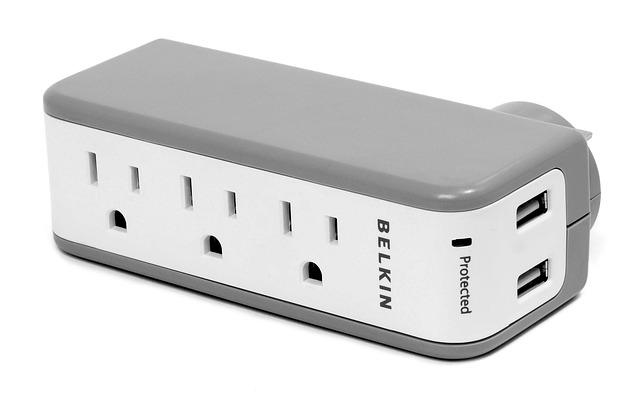Google releases new AI model as ChatGPT retains 43% market share
Google introduced Gemini 2.5, its latest experimental artificial intelligence model; it ranked second in a competitive leaderboard for AI-driven web development tools.On March 25, Google announced that it will allow developers to try out Gemini 2.5 Pro. The company described it as a thinking model, capable of reasoning through thoughts before responding.Google said this improves both accuracy and performance, particularly in coding, science and math tasks. It said Gemini 2.5 can support more context-aware agents. Citing self-reported data compiled by the AI benchmarking platform LMArena, Google shared that the new AI model topped the charts in reasoning and knowledge, science and mathematics. Google described Gemini 2.5 as its “most intelligent AI model.” Google’s new model ranks second in web dev leaderboardGoogle’s new AI model ranked second in LMArena’s WebDev leaderboard, a real-time AI coding competition where models compete in web development challenges created by the AI benchmarking platform. The AI model had an arena score of 1267.70, which surpassed competitors including DeepSeek, Grok and ChatGPT. Still, the top spot went to Anthropic’s AI model Claude 3.7 Sonnet, which had an arena score of 1354.01.Leaderboard for AI web development competition. Source: LMArenaRelated: 44% are bullish over crypto AI token prices: CoinGecko surveyChatGPT dominates the AI tools market While many companies are working to improve their models’ performances, OpenAI’s ChatGPT continues to dominate the AI tools market. In 2024, the AI chatbot recorded more than 40 billion yearly visits, representing a market share of nearly 40%. Data from AI statistics and usage trends platform aitools.xyz showed that overall, the AI tools market had 101 billion visits throughout the year. Canva’s AI generator came in second place, with 10.4 billion visits, gaining a 10.25% market share. AI tools market share distribution. Source: aitools.xyzMore recently, new contenders in the AI tools market have surfaced. In February, the data showed that DeepSeek’s AI tools climbed in popularity and now rank third with a 6.58% market share. DeepSeek also ranks first in the Trending list, recording a growth rate of 195% and monthly visits of 792 million. Despite this, ChatGPT continues to dominate the space, with a 43% market share in February and 5.2 billion monthly visits. Magazine: Researchers accidentally turn ChatGPT evil, Grok ‘sexy mode’ horror: AI Eye
Custodia and Vantage Bank partner for ‘first bank-issued stablecoin’
The crypto-friendly Custodia Bank has worked with Vantage Bank to complete what the two firms say is “America’s first-ever bank-issued stablecoin” on a permissionless blockchain.Custodia said on March 25 that it tokenized US dollar demand deposits and facilitated the issuance, transfer and redemption of the stablecoin “Avit” on Ethereum via the ERC-20 token standard.“A new US dollar payment rail has now been activated inside the US banking system,” Custodia added.“We broke ground on the legal/regulatory front, proving that US banks can collaborate to tokenize demand deposits on a permissionless blockchain in a regulatorily-compliant manner,” said Custodia CEO Caitlin Long.Source: Caitlin LongVantage Bank CEO and President Jeff Sinnott said the event was a “pivotal moment in reshaping the financial landscape, demonstrating how blockchain and stablecoins can revolutionize payments.”In a series of posts on X, Long explained that the Avit stablecoin was a “real dollar” and not a “synthetic” dollar, as Federal Reserve Board Governor Christopher Waller called stablecoins in a Feb. 12 speech.“Real” US dollars, Long explained, can only be issued by the Federal Reserve and a few legally authorized entities, including Custodia Bank. She added that Avit is a “real dollar” as it tokenizes a bank’s demand deposit — funds that customers can withdraw on-demand, such as money in a checking account.Ethereum backers cheer Custodia’s chain choiceCustodia has historically championed Bitcoin, and Ethereum advocates were quick to note that the bank chose Ethereum for the stablecoin.“ETH fixed this. Bitcoin couldn’t,” wrote Ethereum advocate Evan Van Ness. Ethereum educator Anthony Sassano also posted to make clear the “permissionless blockchain” Custodia referred to in its announcement.“Just in case it wasn’t obvious, this is built on Ethereum.”Source: Matthew SigelRelated: Ethereum poised for record highs in Q1 2025, analysts predictEthereum secures over $125.8 billion worth of stablecoins on its network, nearly doubling the second-place Tron blockchain at $64.8 billion, DefiLlama data shows.Ethereum also tokenizes over $3.6 billion worth of US Treasury bills — seven times more than its next competitor, Stellar, at $465.7 million, according to RWA.xyz data.Magazine: Comeback 2025: Is Ethereum poised to catch up with Bitcoin and Solana?
SEC plans 4 more crypto roundtables on trading, custody, tokenization, DeFi
The US Securities and Exchange Commission will host four more crypto roundtables — focusing on crypto trading, custody, tokenization and decentralized finance (DeFi) — after hosting its first crypto roundtable on March 21.The series of roundtables, organized by the SEC’s Crypto Task Force, will kick off with a discussion on tailoring regulation for crypto trading on April 11, the SEC said in a March 25 statement.A roundtable on crypto custody will follow on April 25, with another to discuss tokenization and moving assets onchain on May 12. The fourth roundtable in the series will discuss DeFi on June 6.A series of four crypto roundtable discussions are scheduled from April through to June. Source: SEC“The Crypto Task Force roundtables are an opportunity for us to hear a lively discussion among experts about what the regulatory issues are and what the Commission can do to solve them,” said SEC Commissioner Hester Peirce, the task force lead.The specific agenda and speakers for each roundtable have yet to be disclosed, but all are open for the public to watch online or to attend at the SEC’s headquarters in Washington, DC.SEC softens on crypto with new leadershipThe agency’s Crypto Task Force was launched on Jan. 21 by acting SEC Chair Mark Uyeda. It’s tasked with establishing a workable crypto framework for the agency to use. The task force held its first roundtable on March 21 with a discussion titled “How We Got Here and How We Get Out — Defining Security Status.”The SEC will also be hosting a roundtable about AI’s role in the financial industry on March 27, according to a March 25 release. Join us on March 27 for a roundtable discussion on artificial intelligence in the financial industry. Topics include the risks, benefits, and governance of AI. More details: https://t.co/ekX2RWp2KQ pic.twitter.com/7fH3j1tlwj— U.S. Securities and Exchange Commission (@SECGov) March 25, 2025The roundtable will discuss the risks, benefits, and governance of AI in the financial industry, with Uyeda, Peirce and fellow SEC Commissioner Caroline Crenshaw slated to speak.Under the Trump administration, the SEC has slowly been walking back its hardline stance toward crypto forged under former SEC Chair Gary Gensler.The regulator has dismissed a growing number of enforcement actions against crypto firms it launched under Gensler.Related: Bitnomial drops SEC lawsuit ahead of XRP futures launch in the USUyeda, who took the reins after Gensler resigned on Jan. 20, flagged plans on March 17 to scrap a rule proposed under the Biden administration that would tighten crypto custody standards for investment advisers.Uyeda also said in a March 10 speech that he had asked SEC staff for options to abandon part of proposed changes that would expand regulation of alternative trading systems to include crypto firms, requiring them to register as exchanges. Magazine: SEC’s U-turn on crypto leaves key questions unanswered
North Carolina bills would add crypto to state’s retirement system
North Carolina lawmakers have introduced bills in the House and Senate that could see the state’s treasurer allocate up to 5% of various state retirement funds into cryptocurrencies such as Bitcoin.The Investment Modernization Act (House Bill 506), introduced by Representative Brenden Jones on March 24, would create an independent investment authority under the state’s Treasury to determine which digital assets could be suitable for inclusion into the state retirement funds.An identical bill, the State Investment Modernization Act (Senate Bill 709), was introduced into the state’s Senate on March 25.The bills define a digital asset as a cryptocurrency, stablecoin, non-fungible token (NFT), or any other asset that is electronic in nature that confers economic, proprietary or access rights.The North Carolina bills don’t set market cap criteria for digital assets, unlike other crypto bills that are working their way into law at the state level.Source: Bitcoin LawsThe newly created agency, dubbed the North Carolina Investment Authority, would, however, need to carefully weigh the risk and reward profile of each digital asset and ensure the funds are maintained in a secure custody solution.Bitcoin legislation tracker Bitcoin Laws noted on X that House Bill 506 wasn’t drafted as a Bitcoin reserve bill as it does not mandate the investment authority to hold Bitcoin (BTC) — or any digital asset — over the long term.North Carolina wants in on Bitcoin bill raceOn March 18, North Carolina senators introduced the Bitcoin Reserve and Investment Act (Senate Bill 327), which calls for the treasurer to allocate up to 10% of public funds specifically into Bitcoin.The bill — introduced by Republicans Todd Johnson, Brad Overcash and Timothy Moffitt — aims to leverage Bitcoin investment as a “financial innovation strategy” to strengthen North Carolina’s economic standing.Related: GameStop hints at future Bitcoin purchases following board approvalThe treasurer would need to ensure that the Bitcoin is stored in a multi-signature cold storage wallet, and the BTC could only be liquidated during a “severe financial crisis,” with approval from two-thirds of North Carolina’s General Assembly.The bill would also create a Bitcoin Economic Advisory Board to oversee the reserve’s management.According to Bitcoin Law, 41 Bitcoin reserve bills have been introduced at the state level in 23 states, and 35 of those 41 bills remain live.Earlier this month, US President Donald Trump signed an executive order to create a Strategic Bitcoin Reserve and a Digital Asset Stockpile, both of which will initially use cryptocurrency forfeited in government criminal cases.Magazine: What are native rollups? Full guide to Ethereum’s latest innovation
IMX surges 15% after Immutable says SEC ended probe
The token tied to the crypto gaming giant Immutable surged 15% in the hours after it announced that the US Securities and Exchange Commission closed its investigation into the firm and would take no further action.The Immutable (IMX) token rose around 15% on March 25 to reach just under $0.74 shortly after the firm announced that the SEC shut its inquiry without any breach of violations, which Immutable said closed “the loop on the Wells notice issued by the SEC last year.” IMX matched crypto market downtrendIt is the highest price that IMX has reached since March 3, before a broader market decline — driven by prolonged uncertainty over US President Donald Trump’s tariffs and US interest rates — pushed it down to $0.46 on March 11.At the time of publication, IMX had retraced back to $0.67, according to CoinMarketCap. A move back toward $0.70 would wipe approximately $449,500 in short positions, according to CoinGlass data.IMX is up 0.34% over the past 30 days. Source: CoinMarketCapWhile the token price surged on the positive news, it barely moved when Immutable announced in November it had been issued a Wells notice. However, the broader market was already gaining momentum as Trump’s odds to win the election looked strong in the days before his eventual win on Nov. 5.Immutable co-founder Robbie Ferguson said in a March 25 X post that the SEC’s dropped investigation was “an enormous win for Web3 gaming.”“After a year of fighting, this threat to digital ownership rights has finally been put to rest,” Ferguson said.Related: Crypto influencer Ben ‘Bitboy’ Armstrong arrested in FloridaAmong the top gaming crypto tokens by market cap, several have seen an upswing over the past 24 hours. Gala (GALA) is up 2.78%, The Sandbox (SAND) is up 3.78%, FLOKI (FLOKI) is up 1.91%, and Axie Infinity (AXS) is up 1.50%.IMX hit its all-time high of $9.32 in November 2021 during a major rally in gaming tokens. There’s been speculation about when gaming tokens will experience another significant uptrend, as they’ve historically surged after the broader crypto market moves first.However, over the past 30 days, the total market cap of gaming tokens has dropped 3.65% to $13.13 billion, while trading volume has taken a bigger hit, falling 33.45% to $1.75 billion.Magazine: What are native rollups? Full guide to Ethereum’s latest innovationThis article does not contain investment advice or recommendations. Every investment and trading move involves risk, and readers should conduct their own research when making a decision.
Bitcoin, Ethereum to end Q1 in the red, ‘vertical swing up’ unlikely
Bitcoin and Ethereum are poised to suffer their worst first quarter in years unless they can pull off a huge rally in the next few days.Ether (ETH) has dropped 37.98% so far over the first quarter of 2025, its worst Q1 decline since 2018, when it plunged 46.61%, according to CoinGlass data. Meanwhile, Bitcoin (BTC) is down 6.49% so far over the quarter, which is slated to end on March 31 — marking its worst Q1 performance since 2020, when it saw a 10.83% decline. Crypto market unlikely to flash green before end quarterSwyftx lead analyst Pav Hundal told Cointelegraph that a “vertical swing up into the end of the quarter looks unlikely.” Ether has posted an average return of 78.23% in the first quarter of every year since 2017. Source: CoinGlassHundal said that the crypto market will be “flying a little blind” until the middle of April, when the broader market should have better clarity on US President Donald Trump’s tariff plans.“The economic data shows a global economy in decent shape,” he said. Some analysts say it may only be a matter of weeks after that before Bitcoin sees its next significant rally.Crypto commentator Colin Talks Crypto said in a March 19 X post that Bitcoin may begin its “next major blast-off” around April 30. Meanwhile, Swan Bitcoin CEO Cory Klippsten said earlier this month that there’s more than a 50% chance Bitcoin will hit all-time highs before the end of June.The first quarter has historically been Ether’s strongest and Bitcoin’s second-best. Since 2017, Ether has averaged a 78.23% gain in Q1, while Bitcoin has seen an average return of 51.62% since 2013.At the time of publication, Bitcoin is trading at $87,558, while Ether is trading at $2,059, up 5.08% and 5.88% over the past 24 hours, respectively.Meanwhile, the ETH/BTC ratio — showing Ether’s relative strength to Bitcoin — is at its lowest point since May 2020, sitting at 0.2348, according to TradingView data.The ETH/BTC ratio is sitting at 0.02348 at the time of publication. Source: TradingViewThe rest of the crypto market has followed the downtrend of the two largest cryptocurrencies by market cap, with the entire crypto market capitalization declining 11.65% since Jan. 1, sitting at $2.88 trillion at the time of publication, according to CoinMarketCap data.Related: Bitcoin price has 75% chance of hitting new highs in 2025 — AnalystWhile many in the crypto industry were highly optimistic going into Q1 2025 following a strong end to 2024 after Bitcoin tapped $100,000 for the first time after Trump’s November election win, unexpected macroeconomic conditions were largely to blame for the crypto market’s downturn at the beginning of February.After Bitcoin retraced below $100,000 in February, amid Trump’s imposed tariffs and uncertainty around the future of the US federal interest rate, the broader market sentiment turned fearful. The sentiment-tracking Crypto Fear & Greed Index was reading a “Neutral” score of 47 as of March 26.Magazine: What are native rollups? Full guide to Ethereum’s latest innovationThis article does not contain investment advice or recommendations. Every investment and trading move involves risk, and readers should conduct their own research when making a decision.
Crypto influencer Ben ‘Bitboy’ Armstrong arrested in Florida
Crypto influencer Ben Armstrong, also known as “BitBoy,” has been arrested in Florida after disclosing on social media just days ago that a warrant was out for his arrest.Florida’s Volusia County Division of Corrections listed Armstrong as a fugitive from justice who was taken in custody on March 25 at 7:18 pm local time.A screenshot of the Volusia Country Corrections website showing details of Ben Armstrong’s arrest. Source: Volusia County Division of CorrectionsDays prior, Armstrong said in a March 21 X post that he could “confirm that the warrants for my arrest” were due to sending emails to Cobb County, Georgia Superior Court Judge Kimberly Childs while acting as his own attorney.He also claimed that Judge Childs had deleted her social media accounts due to the emails.Source: Ben ArmstrongArmstrong was previously arrested in September 2023 while livestreaming outside the house of a former business associate whom he alleged had possession of his Lamborghini.Information on Armstrong’s lawyers was not immediately available. Armstrong could not immediately be contacted for comment.Magazine: Crypto fans are obsessed with longevity and biohacking: Here’s why
Crusoe to sell Bitcoin mining business to NYDIG to focus on AI
Crusoe Energy, a company that captures waste gas from oil to power high-performance compute, is selling its Bitcoin mining business to New York Digital Investment Group (NYDIG) to focus on artificial intelligence. In a March 25 announcement, Crusoe said it plans to sell its Bitcoin (BTC) mining operation, including its digital flare mitigation business, to NYDIG, subject to regulatory approvals and other consents. The deal includes Crusoe’s 270 megawatts of power generation technology from more than 425 modular data centers across the United States and Argentina, along with 135 Crusoe employees who will join NYDIG, as no roles will be eliminated as a result of the transaction. Crusoe was founded in 2018 and pioneered technology that captures waste gas created during oil extraction and refinement that would be normally burned off in a process called gas flaring in order to power Bitcoin miners.Photo of gas flaring in action. Source: Crusoe EnergyIt converts the gas or “stranded energy” into electricity used to power the high-performance compute required for Bitcoin mining and AI data centers. Some reports suggest that Crusoe’s Bitcoin mining operation accounts for 1% of the world’s Bitcoin mining. Crusoe’s AI expansion plansHowever, Crusoe says it now wants to focus its tech on building out AI infrastructure. “The AI business — it’s become the majority of our revenue,” Cully Cavness, the co-founder, president and chief operating officer of Crusoe, told CNBC. The company recently expanded its AI data center in Abilene, Texas, to 1.2 gigawatts around the same time it announced a joint venture with investment firm Engine No. 1 to develop large-scale data center campuses across the US to build out AI capabilities.Source: Matthew SigelLast year in December, it closed $600 million in a Series D round at a $2.8 billion valuation to power AI. “We see a huge opportunity in front of us, and we have a big advantage and a big head start with what we’ve already announced — and more coming soon,” added Cavness. Related: Tokenized US gold could ultimately benefit Bitcoin: NYDIGNYDIG said that the acquisition of Crusoe’s Bitcoin mining business will help expand its role in supporting Bitcoin’s proof-of-work security. NYDIG founder and executive chairman Ross Stevens said that “it is critically important to keep the Bitcoin network secure, and at the lowest possible cost,” claiming that fiat currencies are “collapsing against Bitcoin around the world.” Magazine: Ex-Alameda hire on ‘pressure’ to not blow up Backpack exchange: Armani Ferrante, X Hall of Flame








